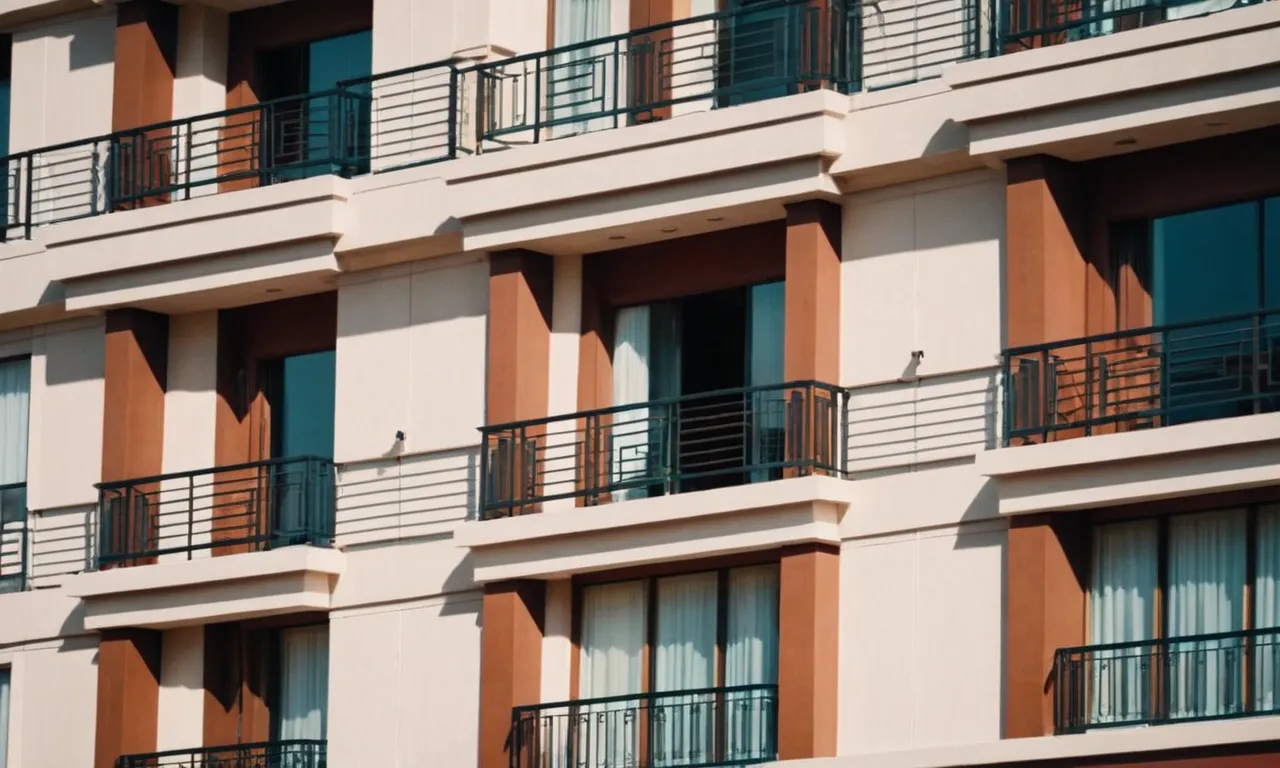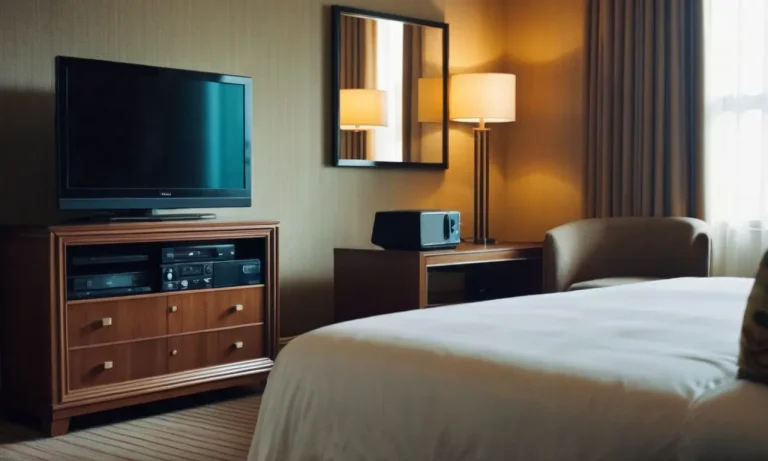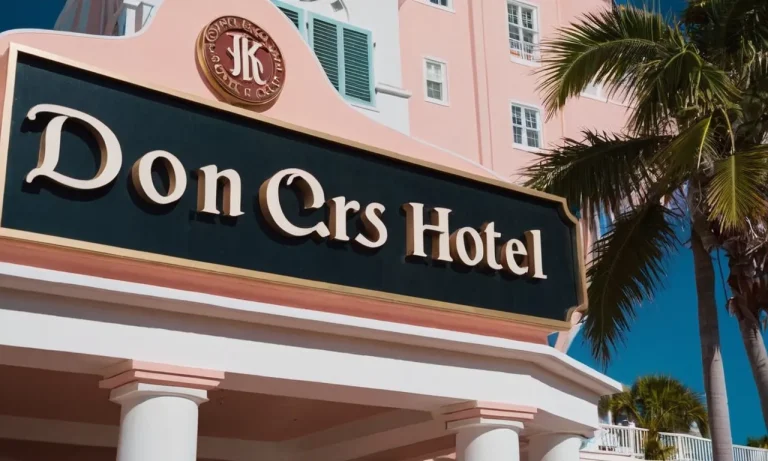What Are The Liabilities Of A Hotel Owner?
As a hotel owner, you bear significant legal responsibilities that come with operating a hospitality business. Failure to meet these obligations can result in costly lawsuits, fines, and damage to your reputation.
Understanding the liabilities of a hotel owner is crucial to mitigating risks and ensuring a safe and compliant operation.
If you’re short on time, here’s a quick answer to your question: The primary liabilities of a hotel owner include premises liability, guest safety and security, employment law compliance, data privacy and security, and compliance with various regulations such as fire safety, accessibility, and environmental laws.
In this comprehensive article, we’ll delve into the various liabilities that hotel owners must be aware of and the steps they can take to protect themselves and their business. We’ll cover topics such as premises liability, guest safety and security, employment law compliance, data privacy and security, and regulatory compliance.
Premises Liability
As a hotel owner, one of the most significant legal responsibilities you bear is premises liability. This legal concept holds property owners accountable for injuries or accidents that occur on their premises due to negligence or lack of proper safety measures.
Failing to uphold premises liability can result in costly lawsuits and damage your reputation.
Duty of Care
Hotel owners have a duty of care to ensure the safety of their guests, employees, and any other individuals who legally enter the premises. This duty encompasses maintaining a reasonably safe environment by addressing potential hazards, conducting regular inspections, and promptly addressing any identified risks or defects.
Neglecting this duty can be considered negligence, exposing the hotel owner to legal liabilities.
Slip and Fall Accidents
Slip and fall accidents are among the most common incidents that can occur in hotels. According to the Centers for Disease Control and Prevention (CDC), falls account for over 8 million emergency room visits annually, making them a significant public health concern.
Hotel owners must take proactive measures to prevent these accidents by:
- Ensuring proper lighting in all areas
- Promptly cleaning up spills or moisture on floors
- Using non-slip floor surfaces in high-traffic areas
- Providing adequate warning signs for wet or uneven surfaces
Swimming Pool Safety
Many hotels feature swimming pools as an amenity for guests. However, these areas can pose significant risks if not properly maintained and supervised. Hotel owners must adhere to local regulations regarding pool safety, such as providing lifeguards, installing adequate fencing and barriers, and ensuring proper signage and safety equipment are readily available.
Failure to uphold these standards can lead to tragic incidents like drownings or near-drownings, resulting in substantial legal liabilities.
Mitigating Premises Liability Risks
To mitigate premises liability risks, hotel owners should take a proactive approach by:
- Conducting regular safety inspections and addressing any identified hazards promptly
- Implementing comprehensive safety protocols and training programs for staff
- Maintaining detailed records of safety measures, inspections, and incident reports
- Carrying adequate liability insurance coverage to protect against potential claims
Additionally, hotel owners can consult with legal professionals and industry experts to stay updated on relevant laws and best practices for premises liability management. By prioritizing guest safety and taking reasonable precautions, hotel owners can significantly reduce their exposure to premises liability risks and potential lawsuits.
Don’t let a lapse in safety measures tarnish your hotel’s reputation or financial standing – stay vigilant and proactive in upholding your duty of care!
Guest Safety and Security
As a hotel owner, ensuring the safety and security of your guests should be a top priority. A safe and secure environment not only provides peace of mind for your guests, but it also protects your business from potential liabilities and legal consequences.
According to a survey by Statista, 83% of travelers consider safety and security measures to be important or very important when choosing a hotel.
Providing a Safe Environment
Creating a safe environment starts with maintaining the physical premises of your hotel. This includes regular inspections and maintenance of facilities, equipment, and amenities to ensure they are in proper working condition and meet safety standards.
Additionally, it’s crucial to have clear emergency procedures in place and to train your staff on how to respond to various situations, such as fires, natural disasters, or medical emergencies.
Security Measures
Implementing robust security measures is essential to protect your guests, staff, and property. Some common security measures include:
- 24/7 security personnel or surveillance cameras
- Secure access control systems for guest rooms and restricted areas
- Well-lit parking areas and walkways
- Regular security patrols and incident reporting procedures
According to the American Hotel & Lodging Association’s 2022 Lodging Survey, 75% of hotels have implemented enhanced security measures in recent years.
Handling Guest Complaints and Incidents
Despite your best efforts, incidents or guest complaints may still occur. It’s crucial to have a well-defined process for handling these situations promptly and professionally. Train your staff on effective communication and conflict resolution techniques, and ensure they understand the importance of documenting all incidents and complaints thoroughly.
Consider implementing a guest feedback system to address concerns proactively and prevent escalation.
Liability for Third-Party Crimes
While hotel owners cannot be held responsible for every crime committed on their premises, they can be held liable if they fail to take reasonable measures to protect their guests from foreseeable risks. This is known as “premises liability.”
For example, if a guest is assaulted in an area of the hotel that is known to be poorly lit or lacks adequate security, the hotel owner may be found negligent. 😬 To mitigate this risk, it’s essential to stay informed about potential threats in your area and take appropriate precautions.
By prioritizing guest safety and security, you not only fulfill your legal obligations as a hotel owner but also create a welcoming and trustworthy environment that can enhance your guests’ overall experience and boost your reputation. Isn’t that awesome? 🎉
Employment Law Compliance
As a hotel owner, ensuring compliance with employment laws is crucial to avoid legal ramifications and maintain a positive work environment. Failure to adhere to these regulations can result in hefty fines, lawsuits, and damage to your establishment’s reputation.
Let’s delve into some key areas of employment law that hotel owners must prioritize.
Fair Labor Standards
The Fair Labor Standards Act (FLSA) governs minimum wage, overtime pay, recordkeeping, and child labor standards. Hotel owners must pay non-exempt employees at least the federal minimum wage of $7.25 per hour (or the applicable state minimum wage, if higher) and provide overtime pay for hours worked beyond 40 in a workweek.
According to the U.S. Department of Labor, in 2022, they recovered over $193 million in back wages for approximately 190,000 workers across various industries, including hospitality. Compliance with FLSA regulations is essential to avoid costly penalties and lawsuits.
Discrimination and Harassment
Hotel owners must foster a workplace free from discrimination and harassment based on race, color, religion, sex, national origin, age, disability, or genetic information. The U.S. Equal Employment Opportunity Commission (EEOC) enforces federal laws prohibiting such practices, including Title VII of the Civil Rights Act of 1964 and the Americans with Disabilities Act (ADA).
In fiscal year 2022, the EEOC recovered $495 million for victims of workplace discrimination. Implementing robust anti-discrimination and anti-harassment policies, providing training, and promptly addressing complaints are crucial steps for hotel owners.
Employee Safety and Training
Hotel owners have a legal obligation to maintain a safe and healthy work environment for their employees. The Occupational Safety and Health Administration (OSHA) sets and enforces workplace safety standards, including those specific to the hospitality industry.
Providing comprehensive safety training, conducting regular inspections, and ensuring compliance with OSHA regulations can help prevent accidents, injuries, and potential legal liabilities. According to OSHA data, in 2021, there were 3.6 million workplace injuries and illnesses reported across all industries, highlighting the importance of prioritizing employee safety.
Worker’s Compensation
Most states require employers, including hotel owners, to carry worker’s compensation insurance to cover medical expenses and lost wages for employees who sustain job-related injuries or illnesses. Failure to secure this coverage can result in significant fines and legal consequences.
According to the National Council on Compensation Insurance, in 2022, the average worker’s compensation claim cost $42,008. Complying with worker’s compensation laws not only protects employees but also safeguards hotel owners from potential financial burdens arising from workplace incidents.
By prioritizing compliance with employment laws, hotel owners can create a positive and legally compliant work environment, mitigate risks, and avoid costly penalties and lawsuits. Seeking guidance from legal professionals and staying informed about evolving regulations is essential to navigate the complexities of employment law successfully.
Data Privacy and Security
As a hotel owner, safeguarding guests’ personal information and ensuring secure transactions are paramount responsibilities. With the rise of data breaches and cyber threats, it’s crucial to implement robust measures to protect sensitive data and maintain customer trust.
According to the Identity Theft Resource Center, there were 1,862 data breaches reported in the United States in 2022, a staggering number that underscores the need for vigilance.
Protecting Guest Information
Hotels collect a wealth of personal data from guests, including names, addresses, contact details, and payment information. Failing to safeguard this information can lead to identity theft, financial fraud, and legal liabilities.
Implement strong encryption protocols, secure databases, and access controls to ensure guest data is protected from unauthorized access or misuse. Additionally, train staff on data privacy best practices and establish clear policies for handling sensitive information.
Payment Card Industry (PCI) Compliance
As a hotel that accepts credit and debit card payments, you must comply with the Payment Card Industry Data Security Standard (PCI DSS). This set of security standards aims to protect cardholder data and prevent credit card fraud.
Non-compliance can result in hefty fines, increased transaction fees, and potential termination of the ability to process card payments. Regularly assess your systems, update software and hardware, and train staff to ensure ongoing compliance.
Cybersecurity Measures
In today’s digital landscape, cybersecurity threats are ever-present. Hotels must implement robust cybersecurity measures to protect their networks, systems, and guests’ data from malicious actors. This includes:
- Firewalls and intrusion detection/prevention systems
- Regular software updates and patches
- Secure Wi-Fi networks with strong encryption
- Employee cybersecurity training and awareness programs
- Incident response and disaster recovery plans
Neglecting cybersecurity can lead to data breaches, system downtime, and significant financial and reputational damage. Stay vigilant and allocate resources to maintain a robust cybersecurity posture.
Breach Notification Requirements
In the event of a data breach, hotel owners may be legally required to notify affected individuals and relevant authorities. Failure to comply with breach notification laws can result in hefty fines and legal consequences.
Stay informed about the state and federal breach notification laws that apply to your business, and have a clear incident response plan in place to ensure timely and compliant notifications.
By prioritizing data privacy and security, hotel owners can protect their guests’ sensitive information, maintain compliance with industry standards, and safeguard their business from the devastating consequences of data breaches and cyber attacks.
Don’t underestimate the importance of this crucial responsibility – it’s an investment in your guests’ trust and the long-term success of your hotel.
Regulatory Compliance
As a hotel owner, ensuring regulatory compliance is a crucial aspect of your business operations. Failure to adhere to various regulations can result in hefty fines, legal issues, and even the potential closure of your establishment.
It’s essential to stay informed and proactive in meeting the requirements set forth by governing bodies.
Fire Safety Regulations
Fire safety should be a top priority for any hotel owner. Strict regulations are in place to safeguard guests and staff from the devastating consequences of fires. These regulations cover various aspects, including fire alarm systems, emergency exits, fire-resistant construction materials, and regular inspections.
According to the National Fire Protection Association (https://www.nfpa.org/), hotels and motels account for a significant portion of fire incidents, making compliance with fire safety codes an absolute necessity.
Accessibility Laws
Hotel owners must ensure their facilities are accessible to individuals with disabilities. The Americans with Disabilities Act (ADA) (https://www.ada.gov/) sets specific guidelines for accommodations, such as accessible entrances, guest rooms, parking spaces, and amenities.
Failure to comply with these regulations can lead to discrimination lawsuits and hefty fines. According to a recent study by the U.S. Department of Justice, approximately 75% of hotels and motels have at least one accessibility violation, emphasizing the importance of prioritizing accessibility compliance.
Environmental Regulations
In today’s eco-conscious world, hotel owners must adhere to various environmental regulations aimed at reducing their carbon footprint and promoting sustainability. These regulations may include guidelines for waste management, water conservation, energy efficiency, and the use of eco-friendly products.
Failure to comply can result in hefty fines and damage to the hotel’s reputation. The Environmental Protection Agency (EPA) (https://www.epa.gov/) provides valuable resources and guidelines to help hotel owners navigate these regulations effectively.
Liquor Licensing and Serving Regulations
If your hotel offers on-premises alcohol sales or service, you must obtain the appropriate liquor licenses and adhere to strict regulations. These regulations cover various aspects, including server training, responsible service practices, age verification, and hours of operation.
Violating these regulations can lead to hefty fines, license revocation, and potential legal liabilities. The National Restaurant Association (https://www.restaurant.org/) offers comprehensive resources and training programs to help hotel owners navigate the complex world of liquor licensing and serving regulations.
Staying up-to-date with ever-evolving regulations can be a daunting task, but it’s an essential part of running a successful and compliant hotel business. By prioritizing regulatory compliance, you not only protect your guests and staff but also safeguard your establishment’s reputation and avoid costly penalties.
Don’t hesitate to seek guidance from industry experts and regulatory bodies to ensure your hotel operates within the boundaries of the law.
Conclusion
As a hotel owner, understanding and addressing the various liabilities associated with your business is crucial for mitigating risks, protecting your guests and employees, and ensuring compliance with applicable laws and regulations.
By implementing robust policies and procedures, providing adequate training, and staying up-to-date with legal requirements, you can create a safe and secure environment for your guests while minimizing your exposure to potential liabilities.
Remember, proactive measures and a commitment to excellence in all aspects of your operations can go a long way in safeguarding your hotel’s reputation and long-term success. Seek legal counsel when necessary and stay vigilant in addressing any potential liabilities that may arise in the dynamic hospitality industry.







